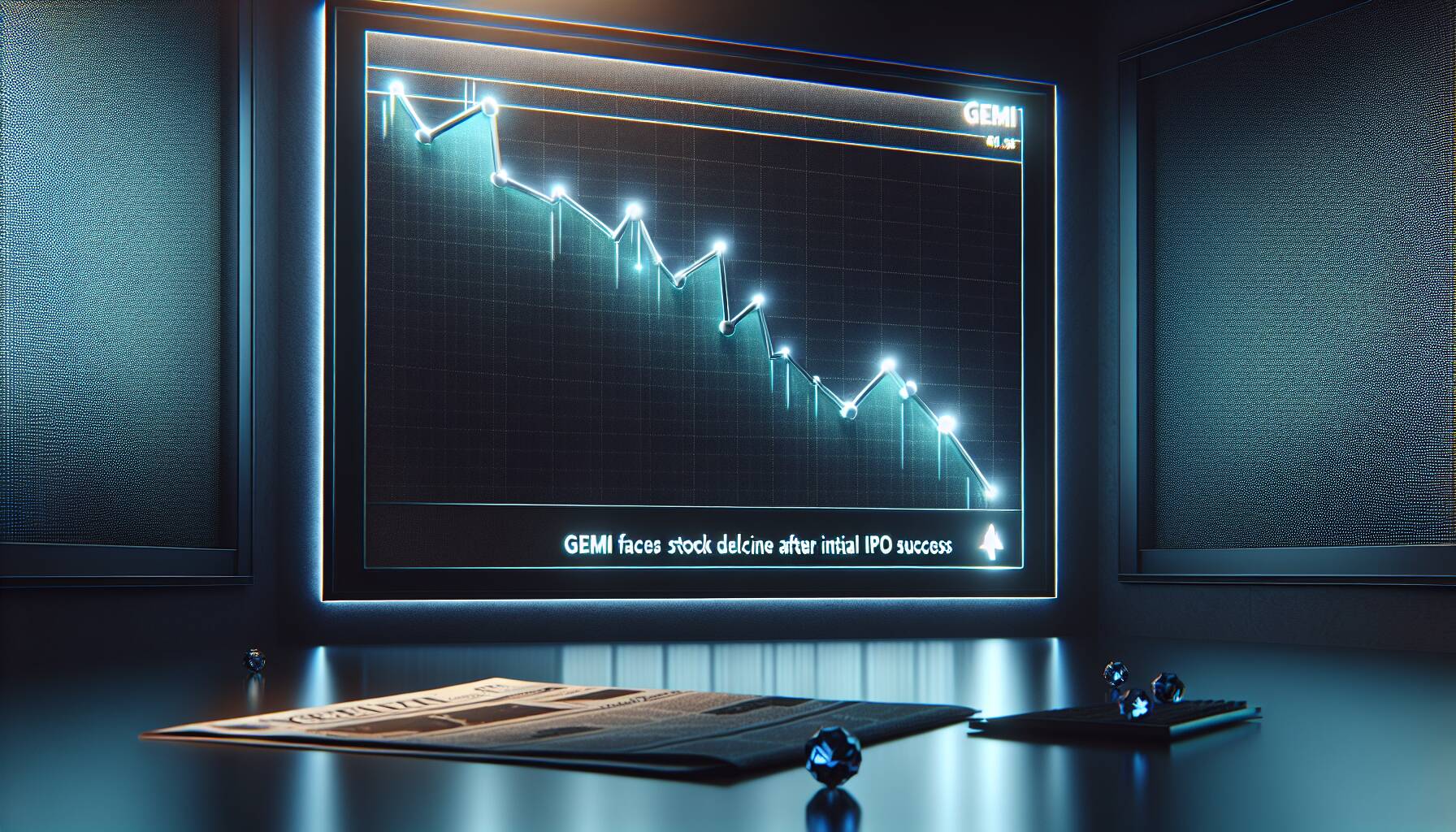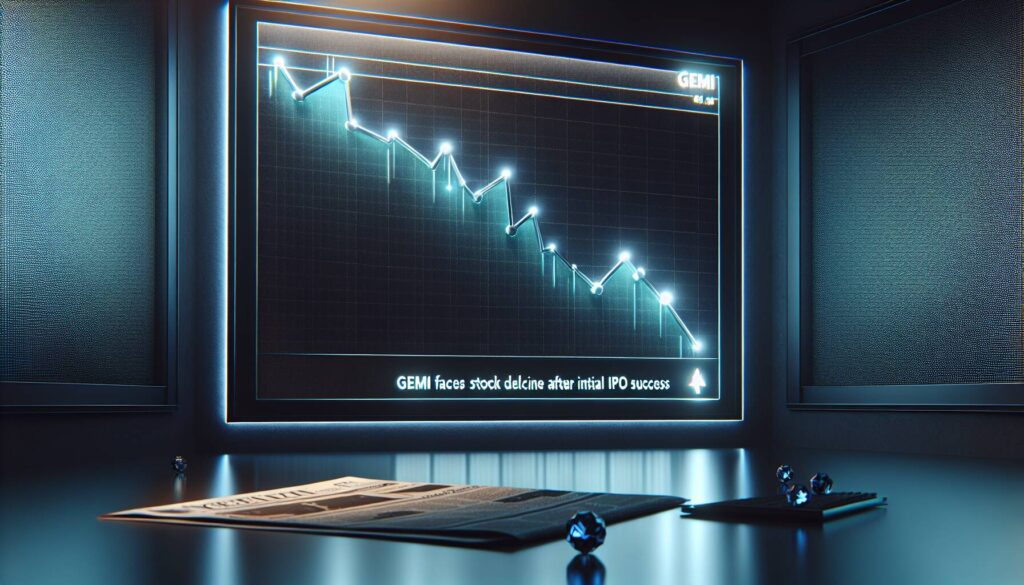The cryptocurrency landscape has been rocked by the recent performance of Gemini Space Station (GEMI), the crypto exchange founded by the Winklevoss twins. Since its debut on the Nasdaq just last Friday, GEMI’s shares have plummeted by over 20%, reflecting a growing concern among investors. After an initial surge following its IPO—which raised an impressive $425 million and set the company’s valuation at $3.3 billion—GEMI’s stock has experienced a tumultuous ride. Trading recently at $30.42, it is down 6% on Tuesday and has fallen nearly 24% over the past week.
Initially, the excitement was palpable as GEMI shares leaped to a peak of $45.89 on their first trading day, closing significantly above the offer price at $32. However, that initial euphoria has quickly faded, with shares now dropping more than 34% from that high. In contrast, the overall crypto equity market has remained relatively stable; Coinbase (COIN) reports flat results, while Robinhood (HOOD) has declined by 3%, and Circle (CRCL) has gained 13% in the same timeframe.
One contributing factor to GEMI’s declining stock price may be its financial performance. The company recorded a staggering $283 million net loss in the first half of 2025, following a $159 million loss for all of 2024. Despite the influx of capital from the IPO, these figures indicate that Gemini is still navigating significant challenges in achieving profitability. Analyst Ed Engel from Compass Point highlighted that GEMI is currently trading at 26 times its annualized revenue for the first half of the year. This multiple suggests that investors might be paying a hefty price for a company still grappling with losses in a sector characterized by volatility, casting a shadow of skepticism over its future prospects.

Gemini Space Station (GEMI) Stock Performance
The recent fluctuations in GEMI’s stock prices reflect significant trends in the crypto market and may affect investor perceptions and decisions.
- Initial IPO Success:
- Raised $425 million with an initial pricing of $28 per share.
- First-day high reached $45.89 but closed at $32, a 14% increase from the offer price.
- Recent Share Decline:
- Saw a drop of more than 20% since the Nasdaq listing.
- Current trading at $30.42, down 24% over the past week.
- Financial Struggles:
- Reported a $283 million net loss in the first half of 2025.
- Followed a $159 million loss in all of 2024, indicating ongoing financial challenges.
- Market Comparison:
- Coinbase remains stable, while Robinhood has seen a slight decrease of 3%.
- Circle, a token issuer, has gained 13%, highlighting variability in the crypto sector.
- Valuation Concerns:
- Currently trading at 26 times its annualized first-half revenue, raising skepticism among investors.
- Such high multiples typically indicate a potential overvaluation for a loss-making company.
These key points signify the volatile nature of the cryptocurrency market and the potential risks for investors considering GEMI as part of their portfolio.
Comparative Analysis of Gemini Space Station’s Stock Performance
The recent performance of Gemini Space Station (GEMI) reflects a stark contrast to its initial debut on the Nasdaq, where the excitement quickly fizzled out. In comparison, other players in the crypto exchange market, such as Coinbase and Robinhood, have shown relative stability, with Coinbase remaining flat and Robinhood only experiencing a minor 3% decline. This suggests that while GEMI initially captivated investors with a strong IPO, the subsequent sell-off could highlight deeper concerns about its financial health and market positioning.
GEMI’s Competitive Disadvantages: The most evident disadvantage for Gemini lies in its staggering $283 million net loss for the first half of 2025, compounded by a history of significant financial setbacks. The company’s aggressive initial valuation, trading at 26 times its annualized revenue, raises red flags for potential investors. In contrast, Circle (CRCL) has seen a 13% increase, indicating that some companies are successfully navigating this volatile sector and appealing to investor sentiment.
Competitive Advantages: On the other hand, GEMI successfully secured $425 million in its IPO, a sum that allows for strategic initiatives and operational adjustments that could potentially turn its fortunes around. This financial influx, if well-utilized, may still offer a competitive edge, particularly in an industry characterized by rapid innovation and change.
This scenario can particularly benefit stakeholders such as long-term investors who are optimistic about the evolving landscape of crypto exchanges. However, for momentum traders and risk-averse investors, GEMI’s current volatility and financial instability could pose significant risks, driving them towards more stable alternatives like Coinbase and Circle, which have demonstrated resilience amid market turbulence.

















